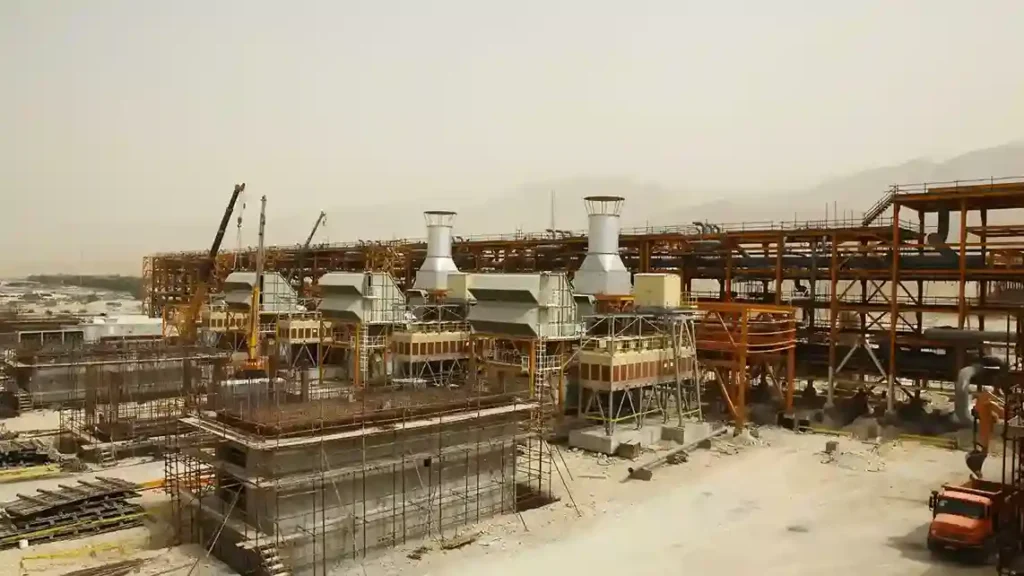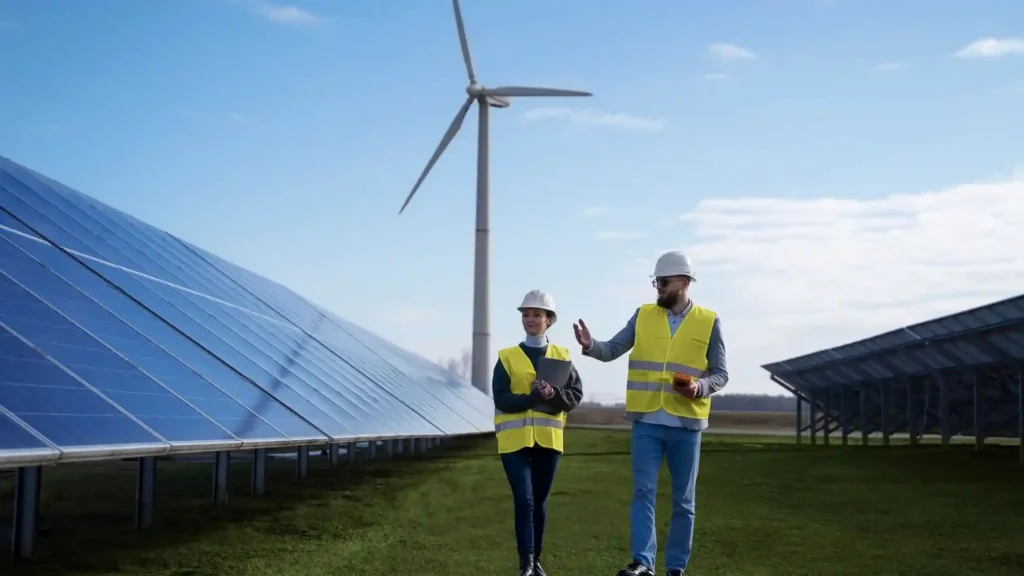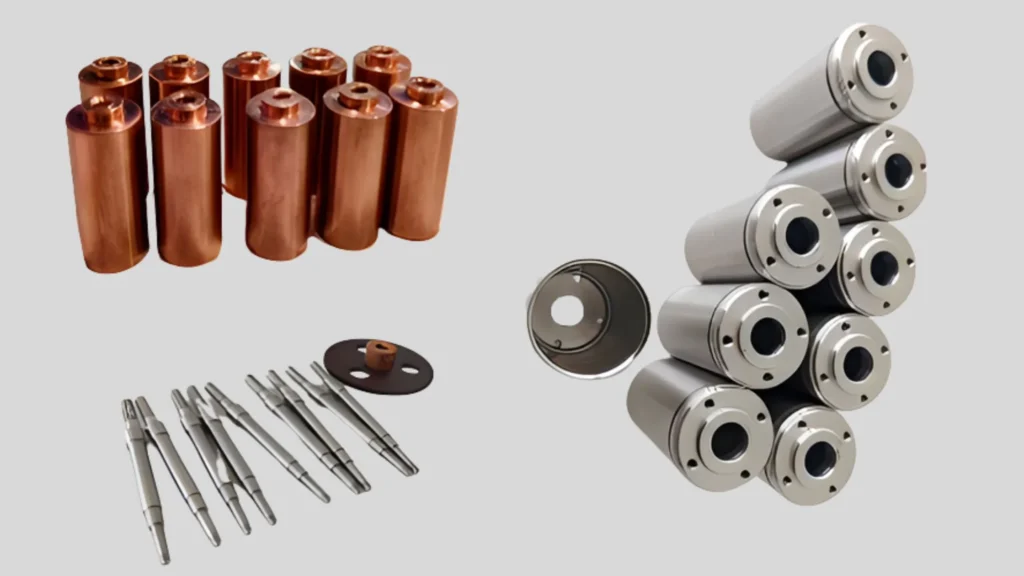Do you find it hard to balance machinability, strength, and budget when selecting materials for your CNC projects? Then you’re not alone.
The need for precision-manufactured equipment is very high in India. Our country relies on this expensive manufacturing method to create accurate parts. But there are a lot of risk factors involved in it. The first step is finding the right material.
No matter how much you spend on each work, all your effort will go in vain once you select the wrong material or the wrong grade of product. Ever been in that position? Or planning to prevent such situations? Then this blog is for you.
Read to understand the qualities of different CNC materials and why they’re a great choice for you.
Table of Contents
Why Material Choice Is Critical in CNC Machining
Do you know who gets to decide the durability, finishes, and tolerances of your desired equipment? Yes, it is your CNC machining material properties. It plays a crucial role in how smooth they are, how long your parts last, and how much precision your equipment achieves.
But sometimes, CNC shops in India select Indian manufacturing materials that are readily available in the country at a lower cost. This has resulted in costly reworks, low-quality equipment, and lost resources.
Click on how CNC machining works: a step by step breakdown to learn more.
CNC machining materials vary depending on the application, because each industry and use-case has different requirements (strength, weight, corrosion resistance, precision, cost, etc.).
Key Considerations When Choosing CNC Materials
There’s no such thing as the best alloy for CNC since it completely depends on what your project specs are. But you can shortlist the right materials to find the perfect machinable plastics India by valuing a few factors.
- How easy is it to machine this material?
Higher machinability means smoother production and lower tool maintenance.
- Is the material cost-effective and available locally?
You can reduce procurement delays and keep your project within budget with locally available materials.
- Does the material meet your functional needs?
Choosing a material that fits the actual performance requirements avoids costly redesigns later.
- Can the supplier deliver within your timeline?
It’s important to consider supplier dependability and delivery timelines, especially for repeat or large-batch production.
Curious about CNC machining? Find out how CNC machining supports the automotive industry in India in our detailed blog.
Popular CNC Machining Materials in India
There are various CNC machining materials available in the global market. Continue reading to learn what they are
Aluminum Alloys
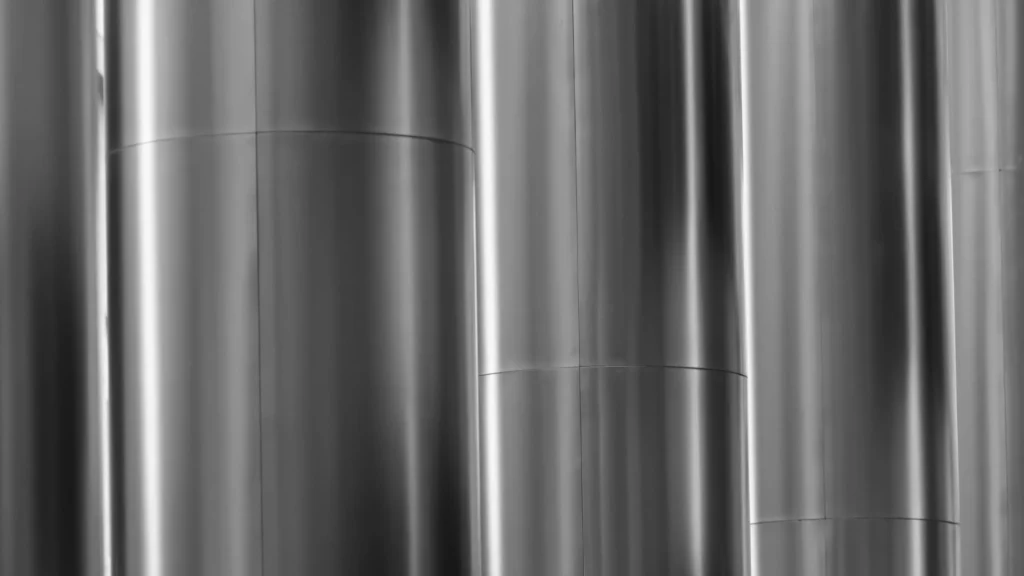
Common Grades: 6061 & 7075
- Why use it? Lightweight, easy to machine, resists rust
- Where it fits: Auto parts, airplane components, electronic casings
- Finishes: Anodizing (adds color and corrosion resistance), powder coating
- Pros: Fast to machine, cost-effective
- Cons: Not the strongest option for high-stress parts
Comparison of Common Aluminum Grades:
| Property | 6061 | 7075 |
| Strength | Medium | High |
| Machinability | Excellent | Good |
| Corrosion Resistance | Good | Moderate |
| Cost | Lower | Higher |
Stainless Steel
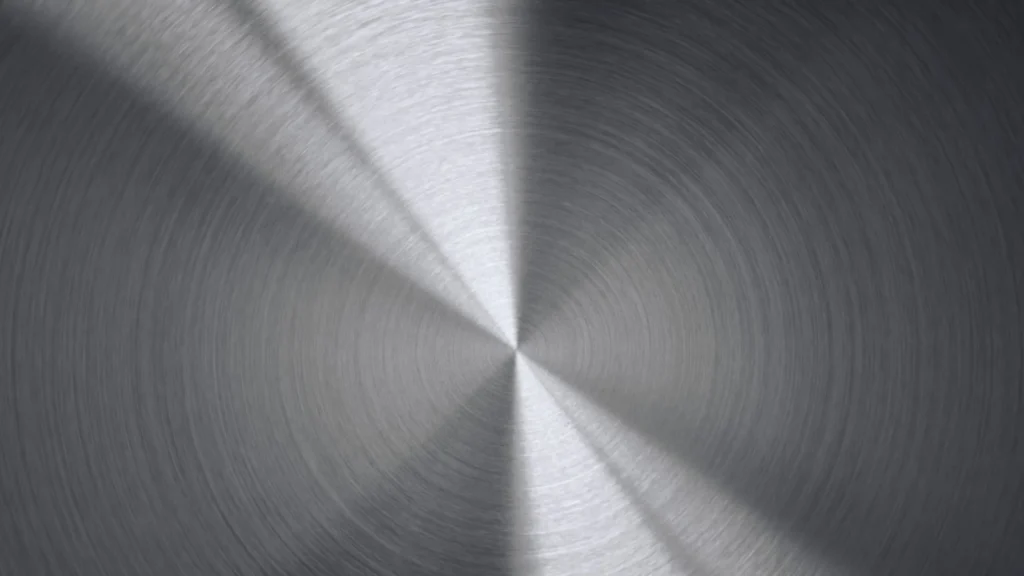
Common Grades: 304, 316, others
- Why use it? Strong, rustproof, durable
- Where it fits: Medical tools, marine parts, food equipment, defense parts
- Challenges: Hard to cut, wears out tools
- Finish & Cost: Looks clean and shiny, but costs more to machine
Stainless versus carbon steel CNC? Read more to understand what makes each unique in quality.
Mild Steel & Carbon Steels
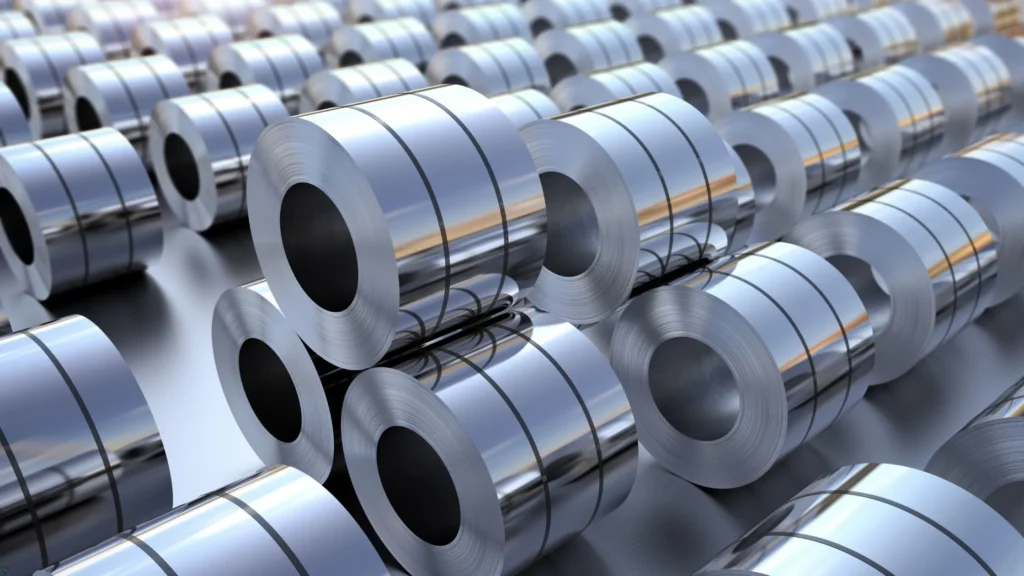
Popular Grades: EN8, EN19, MS
- Why use it? Strong, affordable, easy to weld and heat-treat
- Where it fits: Machine bases, enclosures, industrial tools
- Pros: Cost-efficient, versatile
Cons: Needs painting or plating to prevent rust
Brass & Copper Alloys
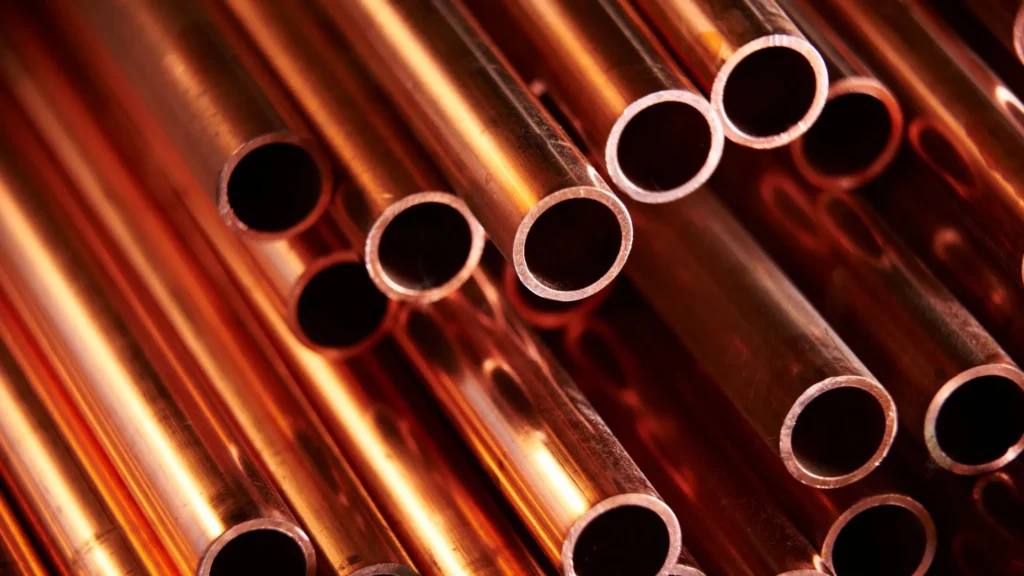
- Why use it? Great for electrical parts, doesn’t rust, looks premium
- Where it fits: Electrical connectors, plumbing parts, decorative items
- Pros: Easy to machine, good surface finish
Cons: Higher cost, limited strength
Titanium
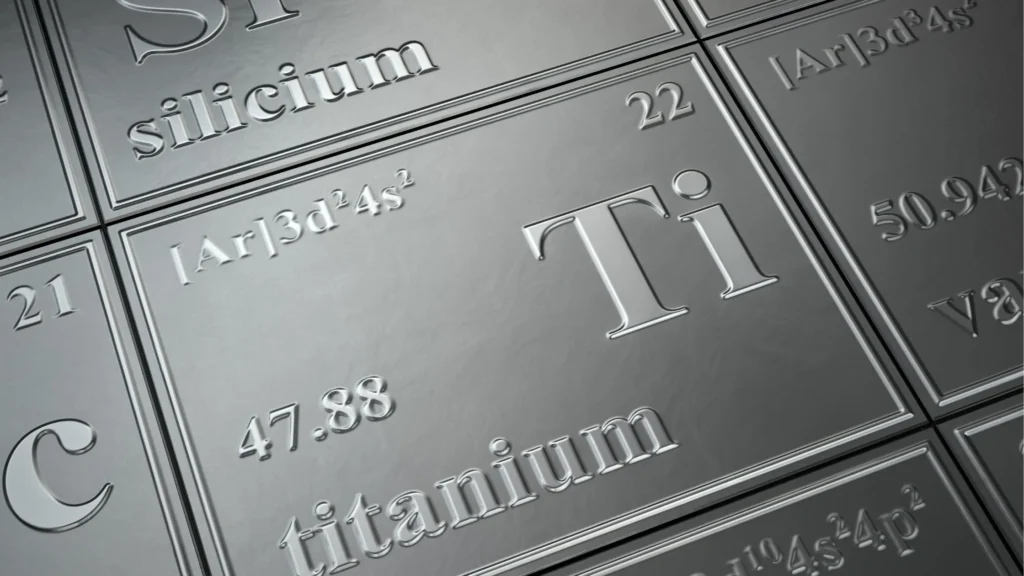
- Why use it? Super strong, light, resistant to heat and corrosion
- Where it fits: Aerospace parts, implants, motorsports
- Pros: Long-lasting, lightweight
Cons: Expensive, hard to machine
Plastics
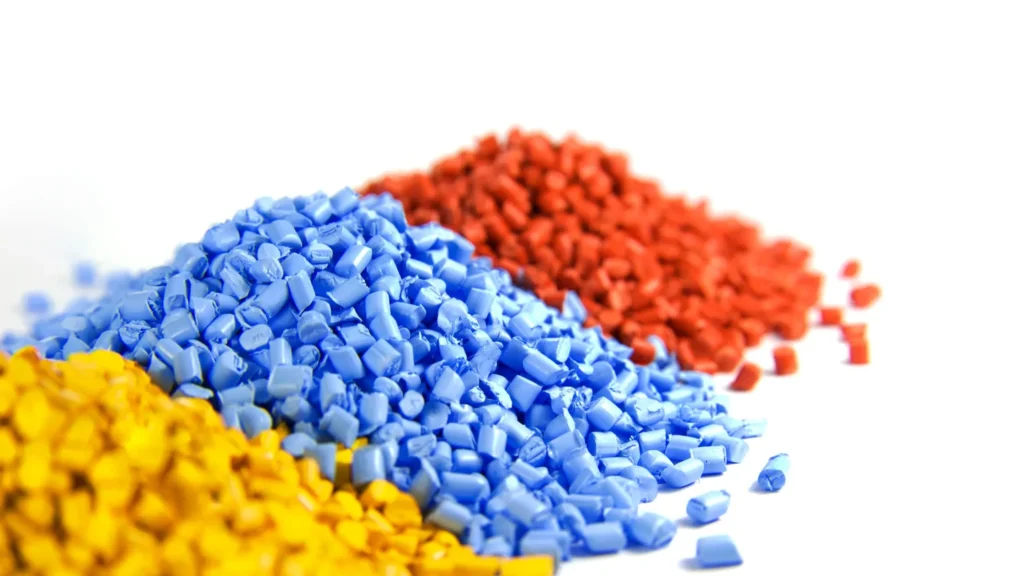
Common Types: ABS, Nylon, POM (Delrin), Polycarbonate, PTFE
- Why use it? Lightweight, non-metallic, resistant to chemicals
- Where it fits: Prototypes, insulation parts, low-stress mechanical parts
- Pros: Easy to cut, good for quick jobs
Cons: Not suitable for high-heat or high-stress use
CNC Plastics Comparison:
| Material | Strength | Heat Resistance | Machinability |
| ABS | Medium | Moderate | Good |
| Nylon | High | Good | Moderate |
| Delrin (POM) | High | Good | Excellent |
| PTFE (Teflon) | Low | Excellent | Moderate |
Composites, Foams, and Others
- What are these? Non-metallic or hybrid materials like carbon fiber, machinable wax, and rigid foams
- Why use them? Ideal for special applications like prototyping or aerospace
- When to use:
- Need for lightweight parts
- One-off samples or trial pieces
- Specific heat, weight, or material behavior
CNC Machining Material Comparison Table
Looking for an easy guide to match and find what suits your project? Then this table is for you
| Material | Strength | Machinability | Corrosion Resistance | Cost (₹) | Typical Use Case | Finish Options |
| Aluminum 6061 | Medium | Very Good | Good | Low | Automotive, Aerospace parts | Anodizing, Powder coating |
| Stainless Steel 304 | High | Good | Excellent | Medium | Medical tools, Marine parts | Polishing, Passivation |
| Mild Steel | High | Excellent | Poor | Low | General machinery, Fixtures | Painting, Zinc plating |
| Brass | Low | Very Good | Good | High | Valves, Decorative hardware | Buffing, Electroplating |
| Titanium | Very High | Hard to machine | Excellent | Very High | Implants, Aerospace | Polishing, Surface coating |
| ABS Plastic | Low | Very Good | Fair | Very Low | Prototypes, Enclosures | Painting |
| Nylon | Moderate | Good | Moderate | Low | Gears, Wear resistant parts | Dyeing, Surface sealing |
| Delrin (POM) | High | Excellent | Good | Medium | Bushings, Precision gears | Machined finish |
| Copper | Moderate | Good | Excellent | Very High | Electrical parts, Terminals | Buffing, Tin coating |
What Indian Machinists Say: Practical Pros & Cons
We connected with expert Indian machinists to help identify the best materials. This is what they shared about the pros and cons of each CNC material.
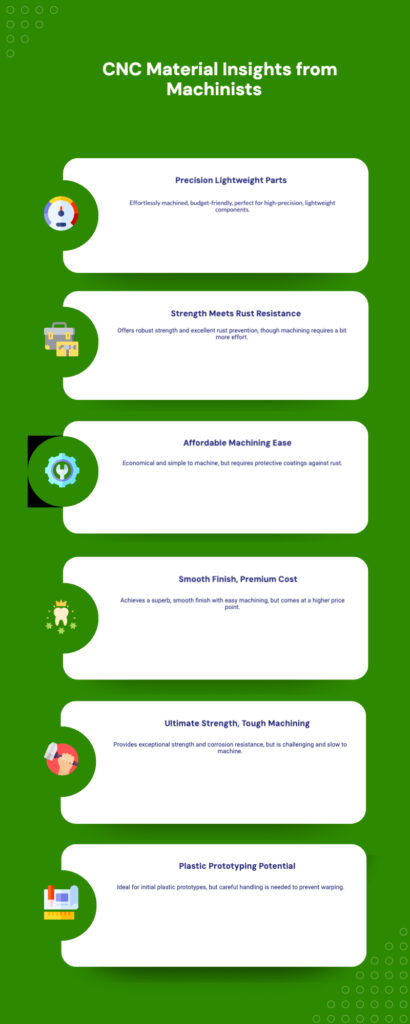
- Aluminum 6061
Easy to machine, low-cost, and ideal for lightweight, precise parts.
- Stainless Steel 304
Strong and rust-resistant, but slightly harder to cut.
- Mild Steel
Cheap and easy to machine, but needs coating to prevent rust.
- Brass
Very smooth to machine and gives a neat finish, but costly.
- Titanium
Extremely strong and rust-proof, but slow and tough to machine.
- ABS & Nylon
Good for plastic prototypes, but may warp if not handled properly.
Real Use Case Examples by Industry in India
Some alloys or metals, like aluminum grade CNC meet the demands of specific industries in India. Let’s take a look at what they are and why they’re widely used in different areas.
| Industry | Preferred Material(s) | Reason |
| Automotive | Aluminum 6061, Mild Steel | Balance of strength, cost, and speed |
| Medical Devices | Stainless Steel 304, Titanium | Biocompatibility and hygiene |
| Electronics | Copper, ABS | Conductivity for parts, plastic for enclosures |
| Home Appliances | ABS, Nylon | Cost control and ease of design |
| Defense & Aerospace | Titanium, Aluminum 7075 | Lightweight and high-performance needs |
| Furniture Hardware | Brass, Mild Steel | Aesthetics and affordability |
Lead Time & Supply Chain Notes for Indian Machinists
Still feel lost at decision-making? Let’s help you learn from the words of people who deal with CNC machining on a daily basis.
- Aluminum, mild steel, and ABS are available from local suppliers with short lead times.
- Titanium and specialty plastics will take longer to import and cost more.
- Source brass and copper locally because of its price sensitivity to global markets.
- You have to make advanced orders for custom alloys.
Material Selection Decision Guide
Step-by-step to pick the right CNC material:
- What’s your budget?
- Low budget → Try aluminum or mild steel
- Higher budget → Consider titanium, stainless steel, or exotic alloys
- What will the part be used for?
- Light use, low wear → Plastic or aluminum
- Heavy load or wear → Hardened steel or titanium
- Corrosive environment → Stainless steel or coated metals
- Do you need a smooth surface finish?
- Yes → Choose materials like aluminum or brass (easy to polish)
- No → Use tougher metals, then post-finish if needed
- Is quick delivery important?
- Yes → Pick materials that are widely available in India (aluminum, MS, SS)
- No → You can order imported or custom alloys
How Indian Buyers Can Order and Test Materials
- Ask your CNC shop for small samples or cut pieces before confirming a bulk order.
- Run a test job to check for surface finish, wear resistance, and machining time.
- Check with local suppliers for availability and delivery time since delays can add cost.
Tips for Indian Manufacturers & Buyers
How to Verify Material Grades
- Check mill test certificates (MTC) to understand their chemical and mechanical properties.
- Use handheld analyzers or lab testing to make sure the material grade verification is accurate for critical parts.
- Work with suppliers who have IS 2062 and ASTM A36 standards for better compliance and assured quality.
Sourcing Tips for Reliable Supply in India
- Choose ISO-certified CNC machining services in India for consistency and quality.
- Build long-term ties with vendors for better pricing, fast delivery, and priority during shortages.
- Visit the supplier’s site to understand more than a catalogue or email chain.
Think Ahead: Environment, Cost & Export Factors
Do you wish to stay strong and establish your brand in various industries? Then always be prepared to face new challenges. Take proactive steps to easily handle adverse situations by considering the steps given below.
- Choose metals like aluminum and stainless steel for sustainable production.
- Check duty rates and restrictions because some alloys attract extra duties.
- Be aware of the exporting rules in your decisions, especially to EU, US, or Gulf markets.
- Buying bulk orders will help you get better pricing, but be prepared to warehouse them safely.
Trends and Future Materials in CNC Machining
The manufacturing environment in India is undergoing rapid growth. You can see better advancements that improve the outcome of CNC machined parts. Some of them are:
Composites are used more in India
Materials like carbon fiber and glass-reinforced plastics are now used more in EVs, drones, and aerospace parts for their strength and lightweight features.
Demand for eco-friendly materials is growing
Indian buyers and exporters are choosing recycled metals and bio-based plastics to meet global environmental standards.
Use of precision-grade polymers
Engineering plastics like PEEK, PTFE, and Delrin are being used in electrical, food processing, and packaging machinery parts because of their non-corrosive nature.
What this means for you:
- Check if your machines can handle these new materials.
- Look for Indian suppliers offering these materials or plan for imports.
- Build strong ties with material suppliers offering full documentation and support.
- Promote your shop’s ability to machine advanced or eco-conscious materials.
- Keep testing new materials that match future buyer needs.
These trends are shaping not just global contracts but local buyer expectations too. So if you are planning to build credibility and grow across the border, adapting to these trends is the easier way.
Key Points Covered
- Both metals and non-metals are used for CNC manufacturing.
- The quality of the CNC machining depends on the material you select.
- Using locally sourced material will reduce the total cost and procurement lead time.
Conclusion
At the end of this blog, we’ve understood there’s no best CNC material. Every CNC material is perfect when in the right use case. So the secret to getting your desired CNC machining result is to select metals or plastics based on the cost of CNC materials India and your project specs.
Ready to launch your new mass CNC production? Venttup Ventures can help you.
Venttup Ventures is the leading MaaS CNC machining service in India that manufactures for the globally changing demands of sustainable and cost-effective tooling. We have been creating a larger space for Indian manufacturing companies in the international market with ISO and ASTM quality. We have 1000+ CNC units ready to provide you with the best CNC-machined equipment.
Require fast turnaround and tight tolerance? Connect with Ventup Ventures now.
FAQ
What is the cheapest material for CNC machining in India?
Mild steel and ABS plastic are the most budget-friendly options for structural parts and plastic prototyping, respectively.
Which material gives the best finish on CNC?
Brass offers a mirror-like finish with minimal effort. Aluminum also produces clean surfaces and looks great after anodizing or polishing.
What plastic is best for CNC prototyping?
ABS is the go-to choice. It’s easy to cut, affordable, and stable for most test parts. Nylon is also good for slightly tougher components.
Is aluminum better than stainless steel for CNC?
Yes, Aluminum is great if you want faster machining, lower cost, and a lightweight result. Stainless steel is better when durability and corrosion resistance are priorities.
Can CNC machines work with foam/composites?
Yes. CNC routers and mills can easily cut foams, fiberglass, carbon fiber, and other composites. They’re common in aerospace and prototyping.
What materials do Indian CNC machinists prefer for custom projects?
Aluminum 6061, EN8 mild steel, and ABS are popular choices in Indian custom projects. They’re easy to source, cost-effective, and suit a wide range of part types.
What are the material safety pointers for CNC?
For CNC machining, follow these material safety pointers: For aluminum and plastics, prevent chip buildup to avoid overheating; for stainless steel and titanium, use coolant to minimize heat and tool wear; for foams and composites, wear a mask to protect against harmful fine particles; and for brass, deburr carefully as machined edges can be extremely sharp.


